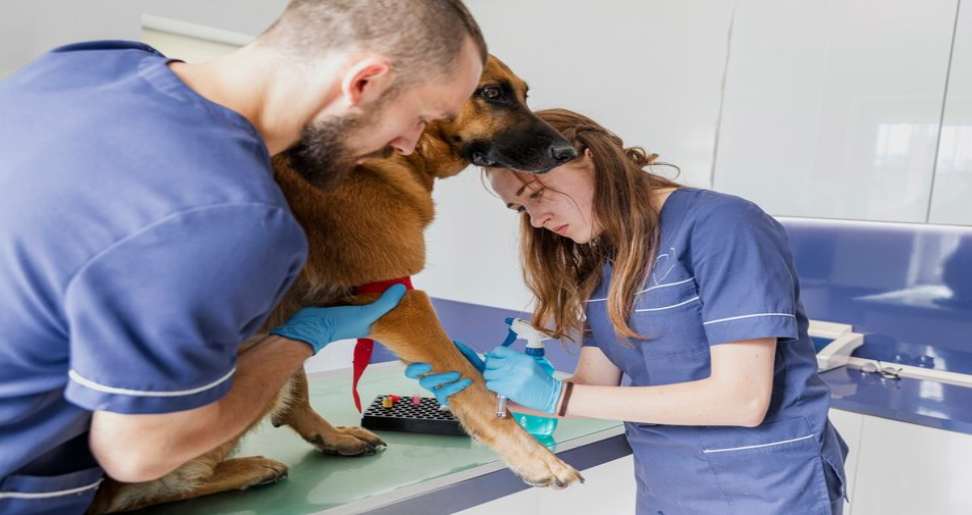Emergency veterinary clinics play a crucial role in safeguarding the health and well-being of our beloved pets, especially during critical health crises. From sudden illnesses to accidents, these clinics provide essential care that can make a difference between life and death for our furry companions. Additionally, they play a pivotal role in ensuring that dogs receive timely vaccinations, protecting them from preventable diseases. This article explores the significance of emergency vet clinics and the importance of dog vaccinations in maintaining their health.
The Vital Role of Emergency Vet Clinics
Immediate Care in Critical Situations: Emergency vet clinics are designed to handle urgent medical situations that require immediate attention. These facilities are equipped with specialized equipment and staffed by experienced veterinarians who are trained to respond swiftly and effectively to emergencies such as trauma, poisoning, or sudden illnesses. For pet owners, knowing that there is a place to turn to during these stressful moments provides peace of mind and ensures that their pets receive the best possible care without delay.
Availability Around the Clock: Unlike regular veterinary practices that operate during set hours, emergency vet clinics are typically open 24/7, including weekends and holidays. This accessibility is crucial because emergencies can happen at any time. Whether it’s late at night or early in the morning, pet owners can rest assured that they can seek immediate medical attention for their dogs when needed.
Specialized Expertise: Emergency veterinarians are trained to handle a wide range of acute conditions. They possess the expertise to diagnose and treat severe injuries, sudden illnesses like seizures or bloat, and manage critical care situations such as respiratory distress or cardiac emergencies. Their ability to act decisively in high-pressure situations can be lifesaving for pets.
Ensuring Dog Health Through Vaccinations
Importance of Vaccinations: Vaccinations are essential for preventing infectious diseases that can be serious or even fatal to dogs. These diseases include rabies, distemper, parvovirus, and kennel cough, among others. Vaccination not only protects individual dogs but also contributes to community immunity, reducing the overall prevalence of diseases in the canine population.
Core and Non-Core Vaccinations: Veterinarians recommend both core and non-core vaccinations for dogs. Core vaccinations are considered essential for all dogs due to the severity of the diseases they prevent. These are typically included the parvovirus, rabies, distemper, and adenovirus. Other Non-core vaccinations may be recommended based on the dog’s lifestyle, exposure risk, and regional considerations, such as leptospirosis or Lyme disease.
Vaccination Schedules: Puppies require a series of vaccinations starting at around 6-8 weeks of age to build immunity gradually. Boosters are administered at intervals determined by the specific vaccine and the veterinarian’s recommendations. Adult dogs also need regular booster shots to maintain immunity throughout their lives. Emergency vet clinics often provide vaccination services alongside emergency care, ensuring that dogs are up-to-date on their immunizations.
Integrating Emergency Care with Preventive Health Measures
Comprehensive Care Approach: Emergency vet clinics not only respond to crises but also emphasize the importance of preventive care. They encourage pet owners to maintain regular wellness exams, vaccinations, parasite prevention, and dental care to keep their pets healthy and minimize the risk of emergencies. By promoting preventive health measures, these clinics contribute to the long-term well-being of dogs.
Education and Support: Emergency veterinarians and staff playing a very crucial role for educating the pet owners about the vaccination’s importance and other preventive health measures. They provide guidance on vaccine schedules, signs of vaccine reactions, and the benefits of maintaining a healthy lifestyle for dogs. This proactive approach helps pet owners make informed decisions and take proactive steps to protect their pets’ health.
Emergency Preparedness: For pet owners, understanding the location and services offered by nearby emergency vet clinic is part of responsible pet ownership. Knowing where to go in an emergency and having a plan in place can make a critical difference in a pet’s outcome. Emergency vet clinics often offer resources and guidance on preparing a pet emergency kit and recognizing signs that may necessitate immediate veterinary care.
Conclusion
Emergency vet clinics are pillars of support for pet owners during times of crisis, providing essential medical care when it matters most. By offering round-the-clock services and specialized expertise, these clinics ensure that dogs receive prompt attention in emergencies. Moreover, their integration of preventive health measures, including vaccinations, underscores their commitment to promoting overall canine health and well-being. For pet owners, partnering with an emergency vet clinic means having a trusted ally in safeguarding their pets’ health throughout their lives.
Read more:


